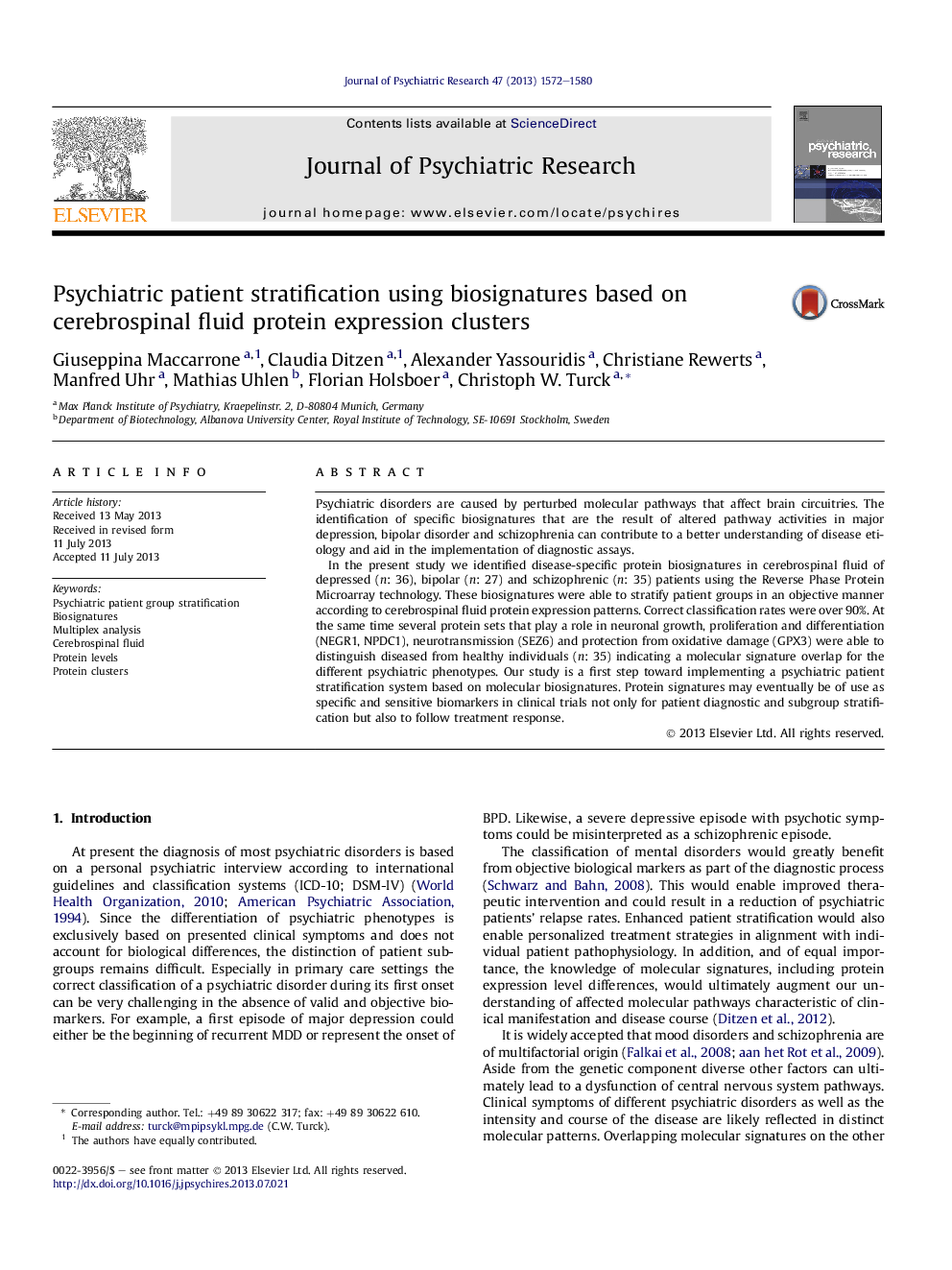| Article ID | Journal | Published Year | Pages | File Type |
|---|---|---|---|---|
| 10302450 | Journal of Psychiatric Research | 2013 | 9 Pages |
Abstract
In the present study we identified disease-specific protein biosignatures in cerebrospinal fluid of depressed (n: 36), bipolar (n: 27) and schizophrenic (n: 35) patients using the Reverse Phase Protein Microarray technology. These biosignatures were able to stratify patient groups in an objective manner according to cerebrospinal fluid protein expression patterns. Correct classification rates were over 90%. At the same time several protein sets that play a role in neuronal growth, proliferation and differentiation (NEGR1, NPDC1), neurotransmission (SEZ6) and protection from oxidative damage (GPX3) were able to distinguish diseased from healthy individuals (n: 35) indicating a molecular signature overlap for the different psychiatric phenotypes. Our study is a first step toward implementing a psychiatric patient stratification system based on molecular biosignatures. Protein signatures may eventually be of use as specific and sensitive biomarkers in clinical trials not only for patient diagnostic and subgroup stratification but also to follow treatment response.
Related Topics
Life Sciences
Neuroscience
Biological Psychiatry
Authors
Giuseppina Maccarrone, Claudia Ditzen, Alexander Yassouridis, Christiane Rewerts, Manfred Uhr, Mathias Uhlen, Florian Holsboer, Christoph W. Turck,
